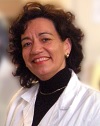
Ornella Parolini
President
IPLASS(International Placenta Stem Cell Society)
Italy
Title: In regenerative medicine does stem cell differentiation really matter?
Biography
Biography: Ornella Parolini
Abstract
Stem cells act as progenitors for multiple other cell types and also contribute to tissue homeostasis, thus suggesting that these cells could be exploited for tissue regeneration and loss of organ function. This concept began to take shape with the discovery of cells such as embryonic stem cells and hematopoietic stem cells, which embody the classical features of stem cells, i.e. the ability to proliferate almost indefinitely and differentiate into multiple lineages. Combined with the ability to engraft, these features open the possibility to reconstitute tissues/organs by generating tissue-specific mature cells through differentiation. Mesenchymal stem/stromal cells (MSCs) very likely possess the same characteristics as other stem cells, although with fundamental aspects of their biology yet to be determined due to the confounding aspect of their intrinsic heterogeneity as a cell population. Recent evidence suggests that the factors released from these cells, rather than their intrinsic differentiation capacity, are the key players underlying their actions in vivo, ultimately raising questions relating to the use of effector molecules for therapeutic purposes. Our studies have mostly been focused on mesenchymal stem/stromal cells isolated from a human term placenta tissues, such as the amniotic membrane (hAMSC). We have demonstrated a paracrine action of hAMSC by showing a significant disease attenuation through the application of cells or their conditioned medium, and even amniotic membrane patches, in animal models of several inflammatory-associated diseases, such as in animals with ischemic hearts, lung and liver fibrosis, and rheumatoid arthritis. Altogether, these studies highlight the potential use of hAMSC and their derivatives (e.g. amniotic patches and conditioned medium), as a therapeutic tool in degenerative diseases based on altered immune reactions and inflammatory processes. In this presentation we will discuss evidence suggesting that a major role for paracrine actions of these cells, rather than their differentiation, underlies their therapeutic effects.

